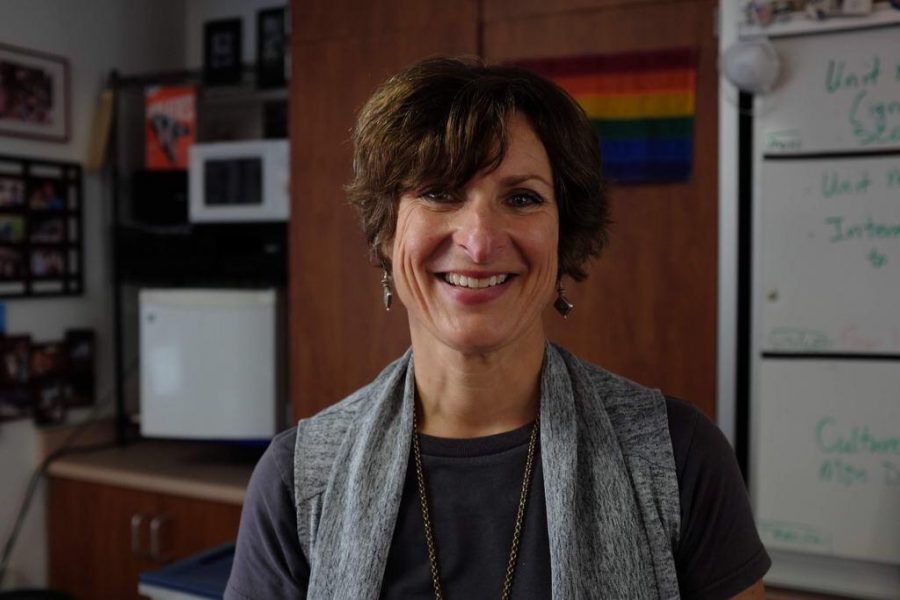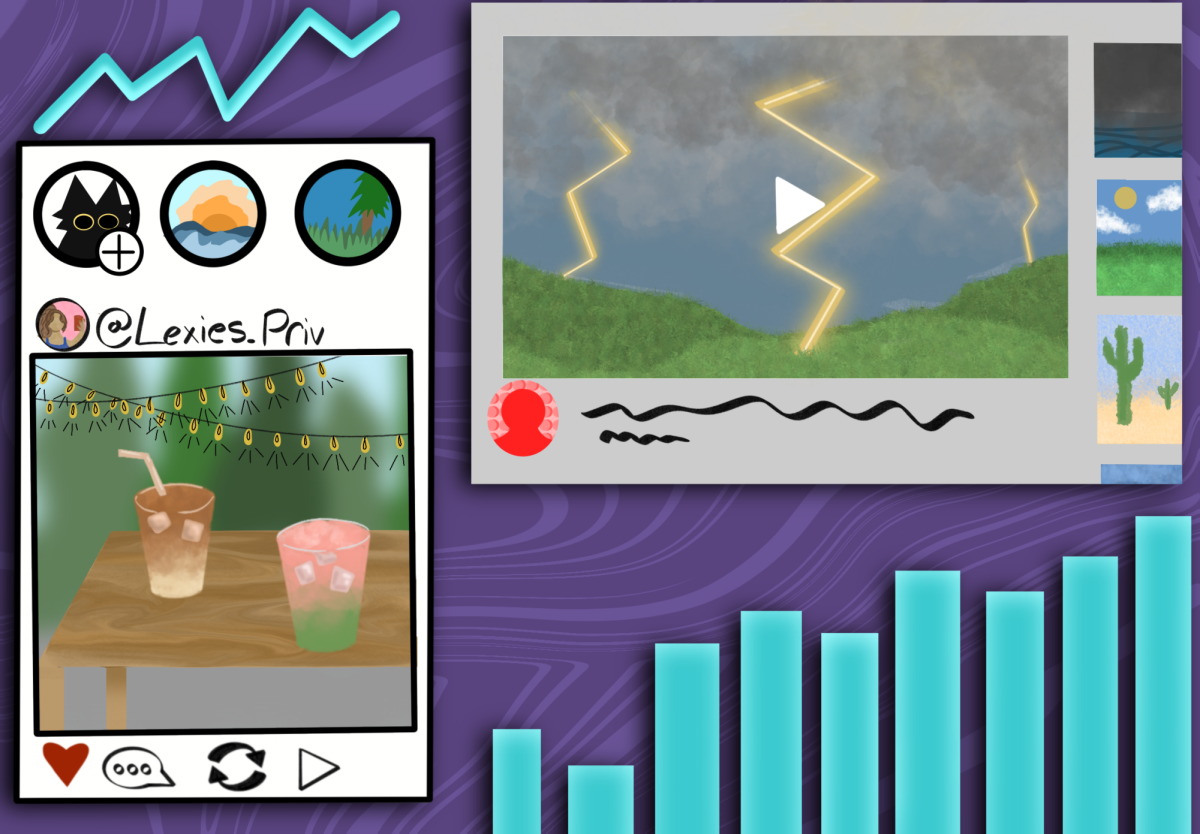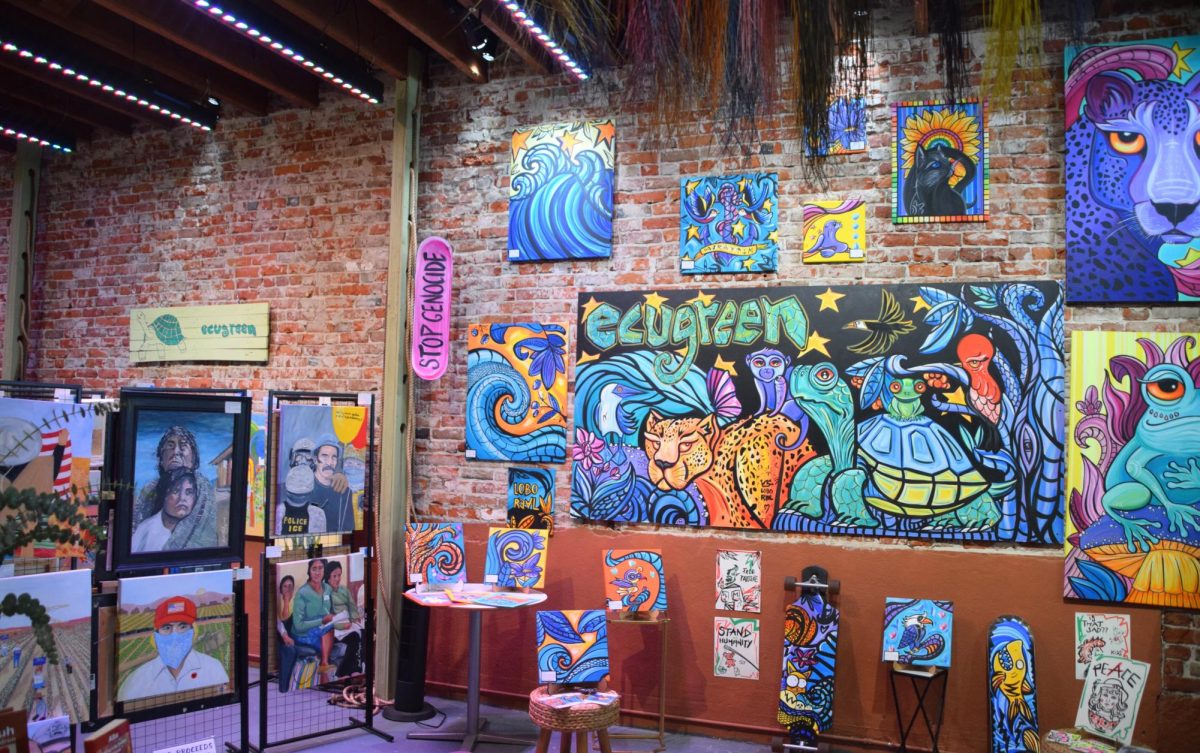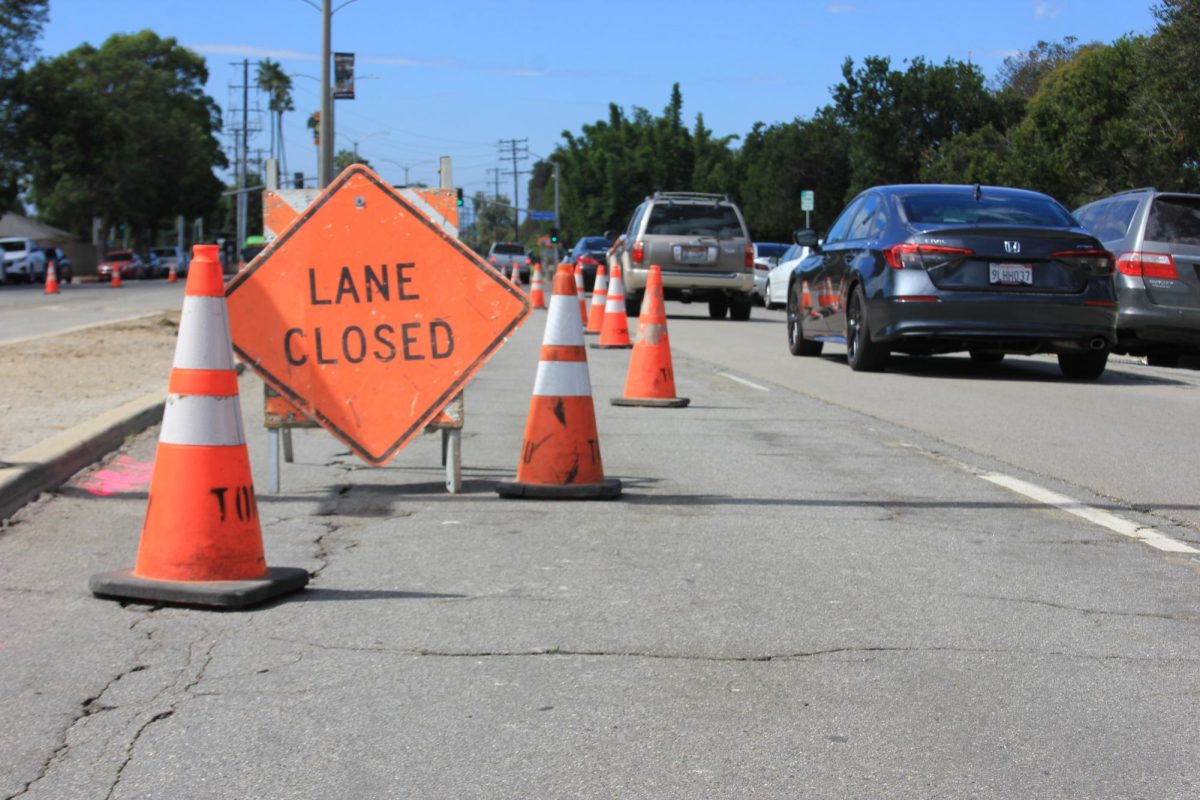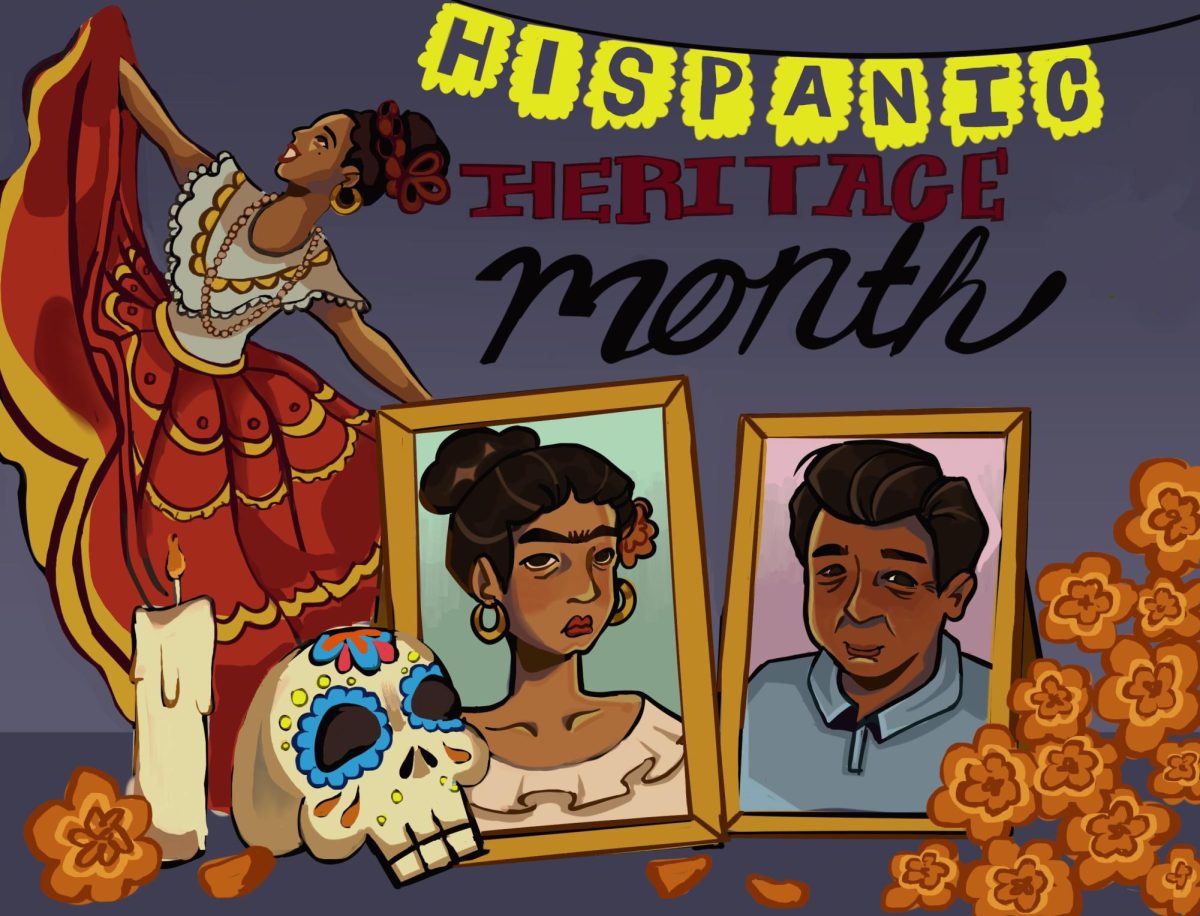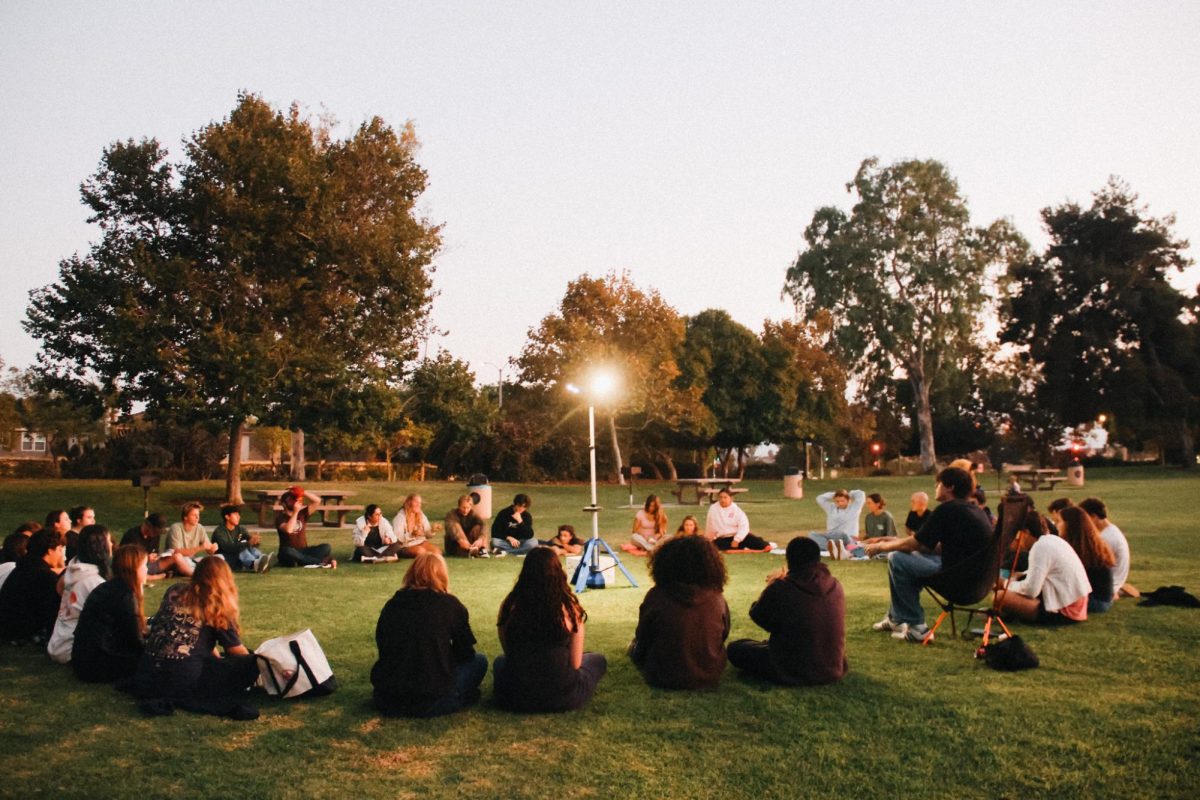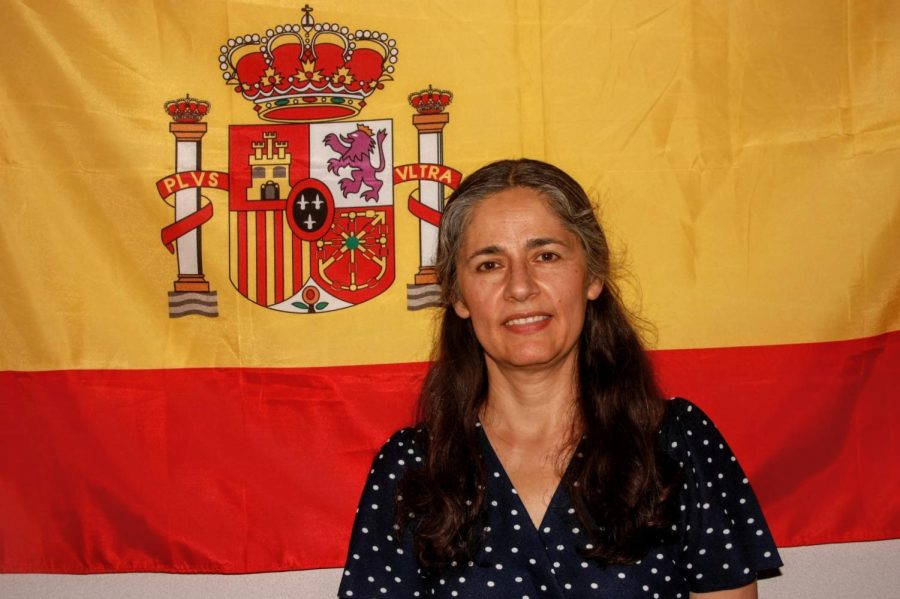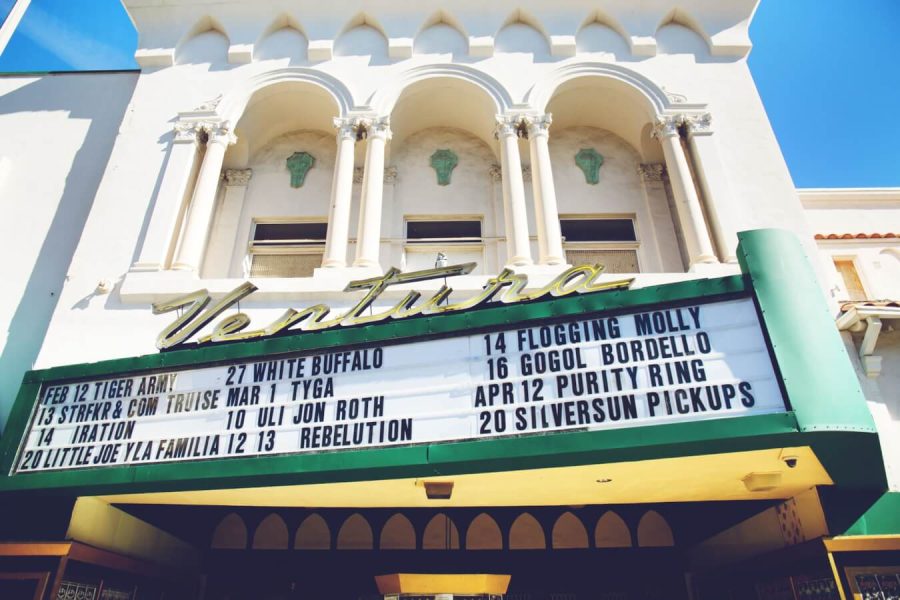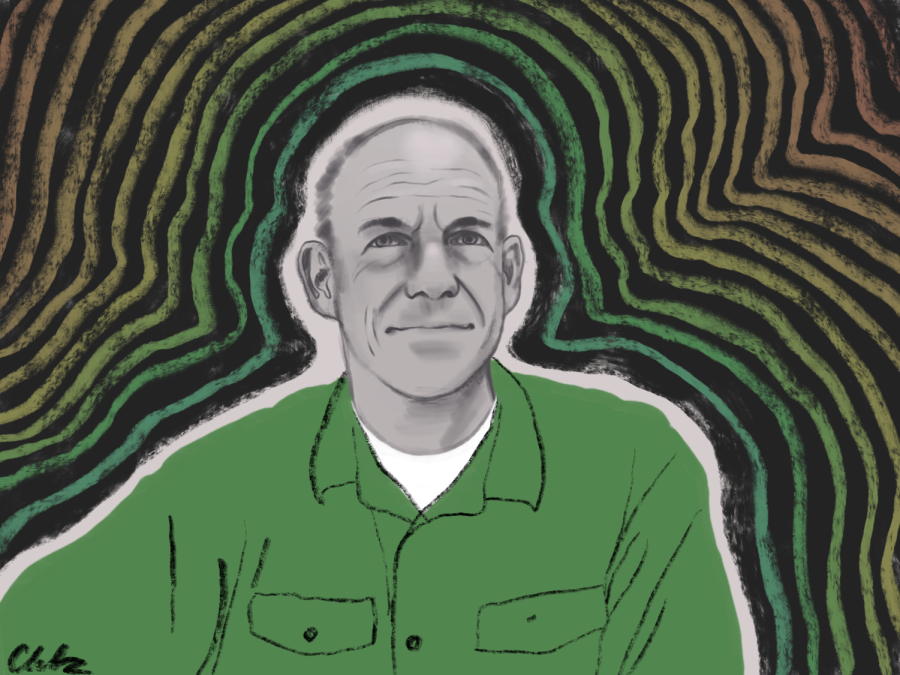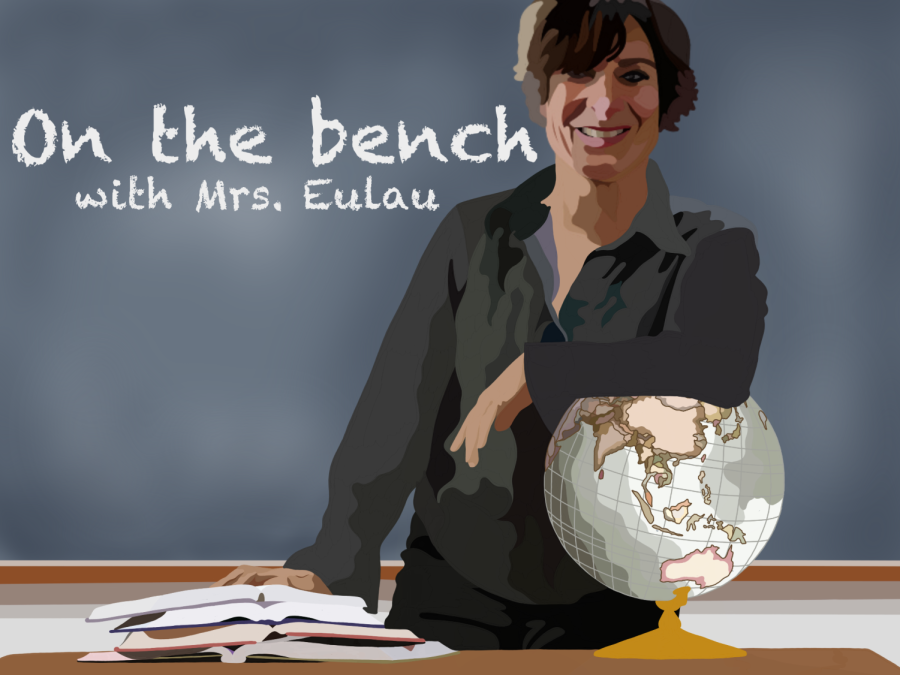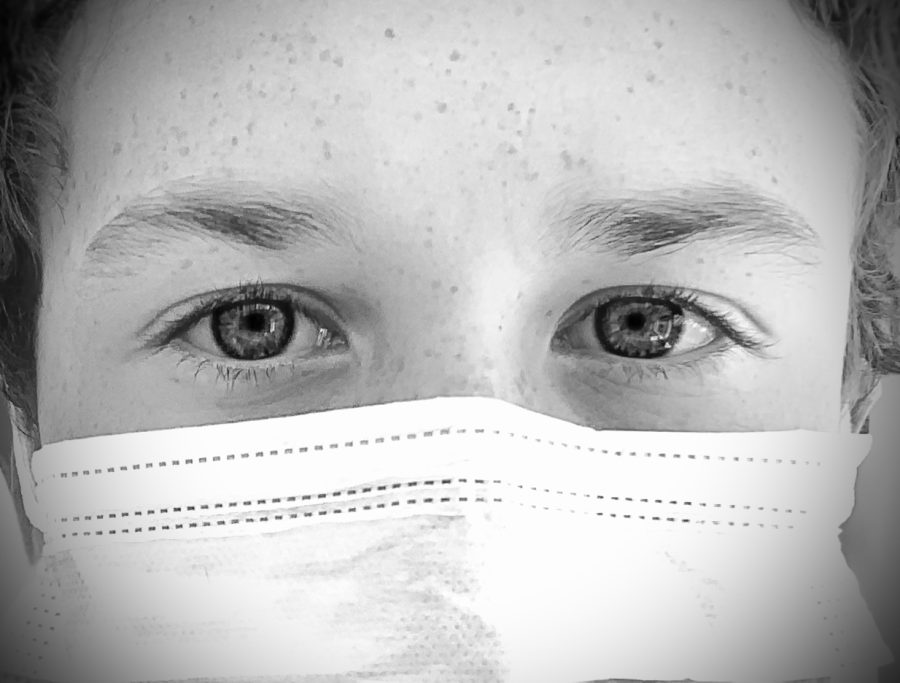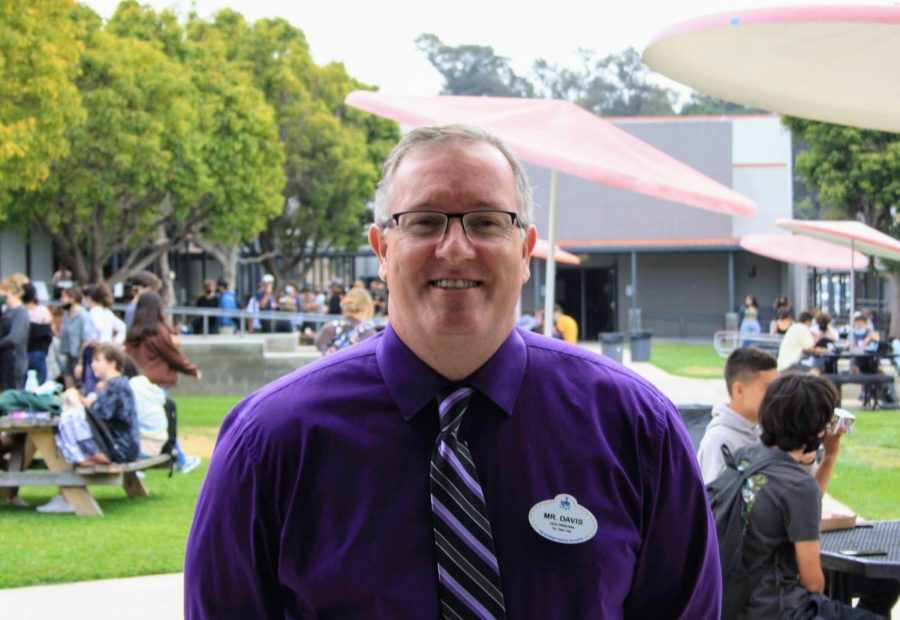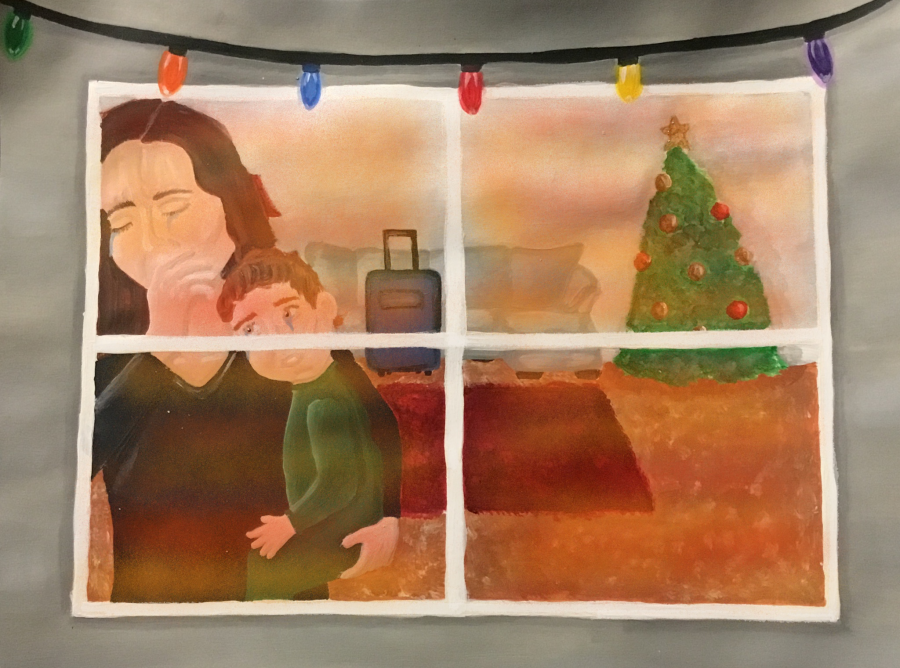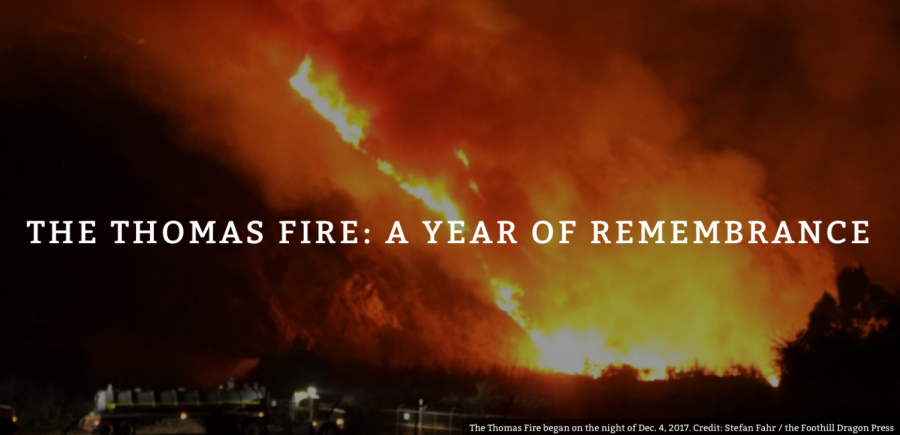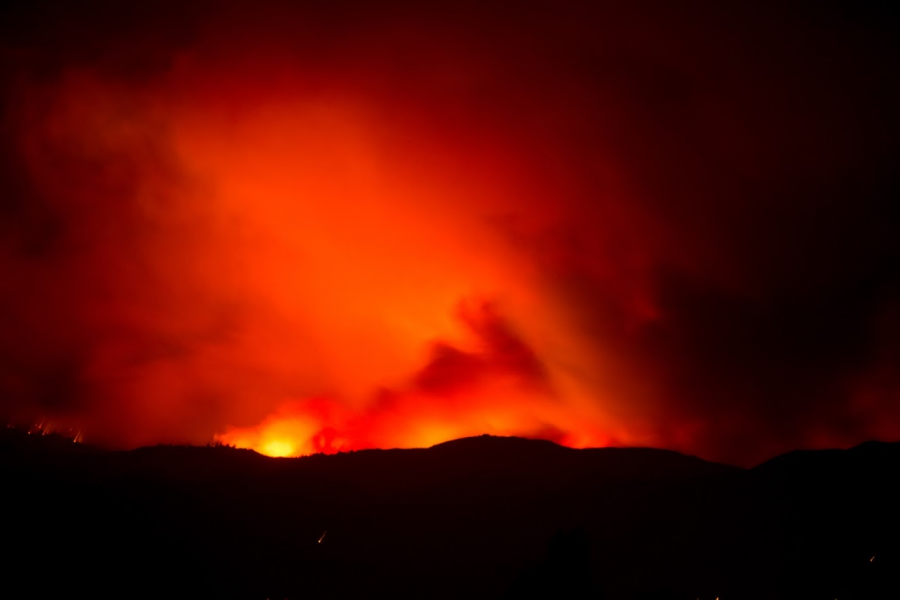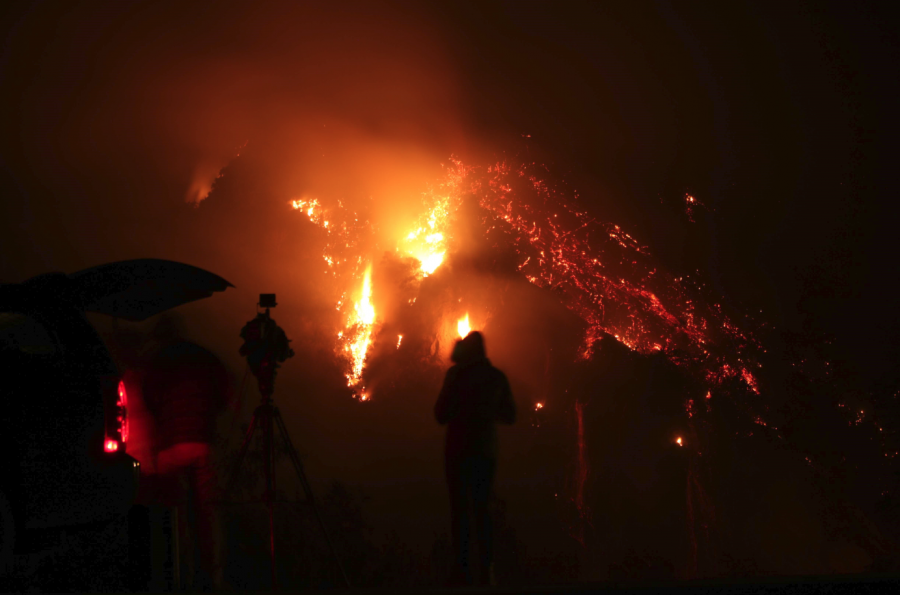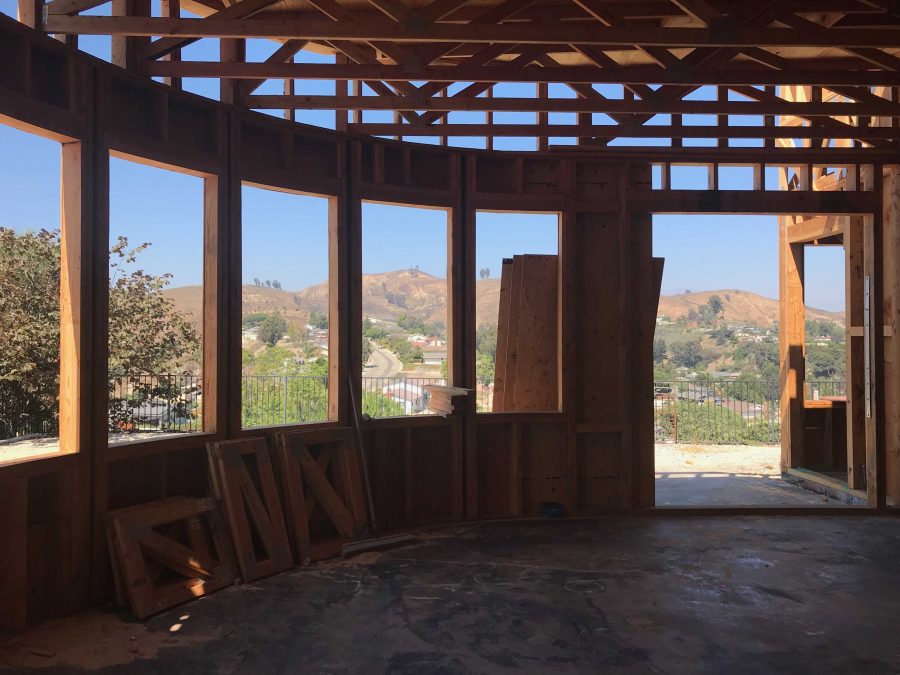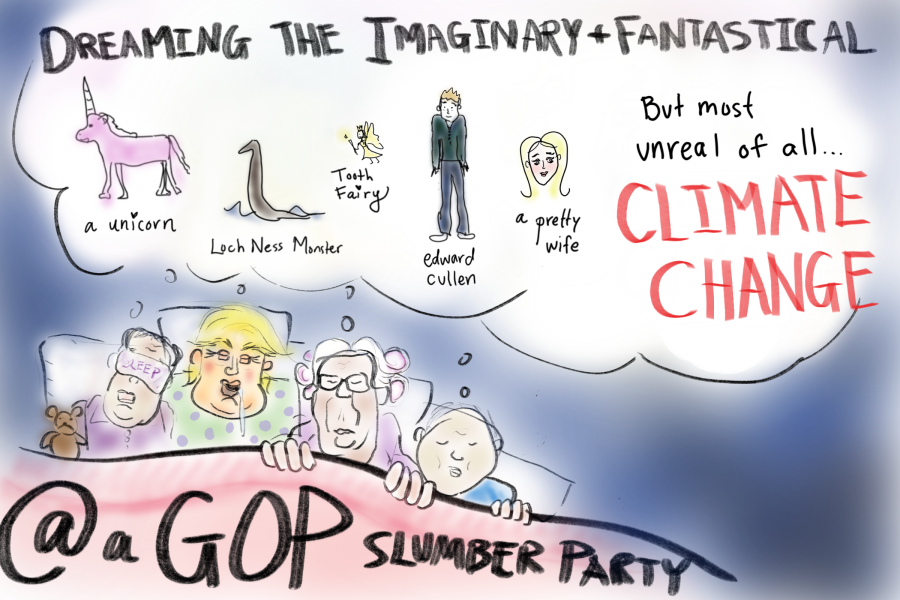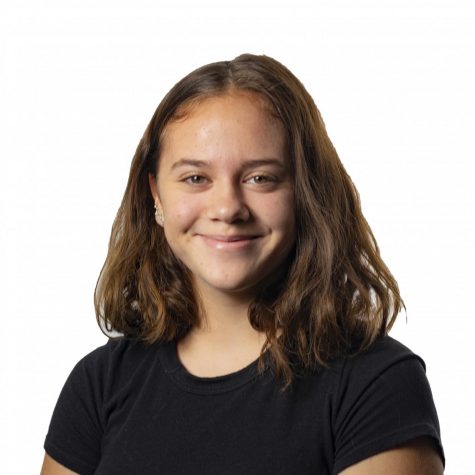“It was absolutely surreal and sort of terrifying,” teacher Cherie Eulau said, regarding the Thomas Fire.
She had been prepared and organized for a fire after seeing what happened with the fires in northern California in early 2017.“I had sort of a list together of things that I would grab if I had to,” Eulau said.
She lives in a high risk area above Ventura High School on the highest street up.
On Dec. 4, 2017, Eulau had gone to bed early knowing that there was a fire in Santa Paula, but had been tired after grading essays and didn’t think that the fire would reach her. She had her electronics ready for any notifications in case of evacuation, yet she and her husband ended up missing the sent out warnings and evacuation orders, as well as the law enforcement evacuation orders with a bullhorn.
They didn’t hear any news until after midnight and “immediately knew, even though I couldn’t quite hear what they were saying, that it was an emergency,” Eulau expressed.
At this point she was completely aware of her surroundings and started to get ready to leave. “[I] made sure I had running shoes on and got my stuff I wanted to get out,” Eulau said.
“The image that really sticks with me is opening that garage door and seeing the flames almost at the houses right across the street and just that slight moment of panic—because you know, it’s well over 100 degrees, the wind is whipping around, there’s embers flying everywhere and just this split second of being kind of frozen and then just like ‘okay, let’s get in the car and get out of here,’” she recalled.
From there, they went down the hill, called their neighbors and went to a friend’s house at Pierpont.
“We just stood there and watched the city burn,” Eulau said.
They kept themselves updated by downloading an app which allowed them to listen to the fire department scanner.
According to Eulau, they were “really struck by their professionalism and how calm they were, but also how understaffed they were.”
They were also shocked hearing how fire hydrants were empty; “They kept saying ‘no, this hydrant isn’t working’,” Eulau recalled.
The morning after their evacuation, Eulau woke up early after only getting a couple hours of sleep to see if she could get up to her house. Luckily, her neighborhood had been allowed to return home “unlike Ondulando that got completely shut down and you know, [had] military, police escorts,” she said.
When she arrived she had gotten a text from a neighbor who told her their own house had burned down. She ran up the hill “and was astonished to see that our house was still there, given that the three houses across the street were gone and one house was still aflame and it was aflame the whole day.”
The fire had burned one of their hedges, their fence and their garage.
“So the inside of the garage kind of got in a way, got burned out and not everything was burned to ashes, but essentially burned out,” she said. Thankfully, the firewall between their kitchen and garage kept the fire from getting into the house.
“It was the Laguna Fire Department, station number two […] who saved our house,” Eulau said.
Since the fire was located outside the main structure of their house, they were able to move back in after five days because she had immediately jumped on getting a company out to their house for the deep clean they would need. “We got a verbal okay from our insurance and we got them in there, really when we were [still] under mandatory evacuation,” she said.
“The break was exceptionally busy,” Eulau confessed.
The whole process with the insurance company had been a lot. “The physicality of throwing away everything that’s in your garage, but also documenting it and typing it all into a form for the insurance company.”
Emotionally, it was also really difficult. “We’re living in this desolation zone. We only have one surviving neighbor on one side of us, the other house was okay but they don’t live there full-time,” she remarked.
There was a lot to get done and she wasn’t really able to sleep through the night for at least a month. “[I would] wake up and I’d think about all these things I’d have to do,” Eulau said.
She had wished for at least one day to come back to school so she could “give everybody a hug,” she expressed.
Though, she valued the time off to get everything situated and done.
This was also a valued time within the community.
“I think every community comes together in a crisis, but I do think Ventura for a city over 100,000 doesn’t feel like a city over 100,000,” she said.
It feels like a small community: “it’s not six degrees of separation, it’s one or two,” Eulau described.
It’s going to take a long time to rebuild the city back to its former self. “I think what happens for the people that have to totally rebuild or lost things, it’s tough now but it’s going to be tough for years,” she said. The people less physically affected by the fire will start to move on, but she thinks it’s important to “check in with people six months from now, a year from now, a year and a half from now.”
Cherie Eulau still finds it incredibly important to stay in touch with those affected by the fire one year later. Recently, she had her neighbors across the street whose home burned down over at her house: “in fact, he said something like ‘we still sort of feel adrift even a year later,’ because they don’t feel a part of the neighborhood where they’re renting because they know they’re moving back,” she recalled.
The Thomas Fire helped her with understanding these types of disasters and just how quickly fire moves. “Being ready for a disaster whether it’s an earthquake or fire and the process of having to rebuild and the bureaucracy of that” is what she believes to be truly important for all people to know.
“We really do need to be prepare and think it through […] what would you get out and where is it? Can you easily get it into your car?” are questions that will more easily be answered outside of a time of emergency.
“We were especially lucky—we as Venturans—that everybody got out. There [wasn’t] anybody trapped in cars and stuff like we’re hearing about in the Camp Fire,” so it’s important to plan for disaster like this, according to Eulau.
It took a year for their garage to be restored. Someone just last week had been finishing up the last details. Besides the garage, some plants had been burned, “but nothing significant,” Eulau described.
“It definitely makes you look at what is important,” she said.
“I had a 10 minute list and a 20 minute list in terms of what I would get out,” because she had heard about a fire around Santa Rosa previously. She had a bucket to put things in, like her photo albums, and had thought things through.
The family across the street from them “that next night were getting texts from almost a 100 people and she started just texting ‘house gone, we’re fine’ because ultimately that’s what’s important,” Eulau recalled.
Currently, Eulau feels more of “that sort of ‘Ventura Strong,’” because people are starting to rebuild, or get permits for construction. She also advises “to keep in mind that for people who are rebuilding it’s enormously stressful.”
It takes up a huge amount of time, “just even with our garage,” she said.
She believes if her house would’ve burned down she might have needed to take a leave of absence, because “it would be tough for both people to have a full time job and rebuild,” Eulau explained.
Starting to see permits and “people getting excited about the rebuilding process, versus just feeling completely overwhelmed but actually seeing a little progress,” has been great for Eulau.
“Each little thing just makes everyone happy,” she said.
She’s eager for her neighbors to be back across the street, “so everyday when I drive home I know it’s that much closer to having them back and being a part of the neighborhood,” Eulau described.
Her advice to people struggling in the recent California fires is to “get the process started [with insurance] as early as you can and just be ready for constant setbacks that have nothing to do with you. You did everything right, and yet it’s the bureaucracy that slows things down.”
Eulau described how some sort of “cheat sheet” like a website on what people need to know when going through a natural disaster would ultimately be beneficial “so that learning curve could be flattened out for some people,” and more are aware of what to do in that type of situation.
“After the fire, it was traumatic even though—like I said—we didn’t lose much, just to see Ventura and the neighbors across the street, it just made you cry.”
The emotional toll of the fire had become very real to Eulau. She wasn’t sleeping well, had been “dealing with it emotionally, trying to be supportive for neighbors and that sort of survivor’s guilt,” while also spending five weeks throwing things away every day; it was “physically and emotionally exhausting.”
“Everyday you drive home you still see this construction” of the homes that were lost. Though, for the most part things have gone back to normal and she is much more rested than she was a year ago.

